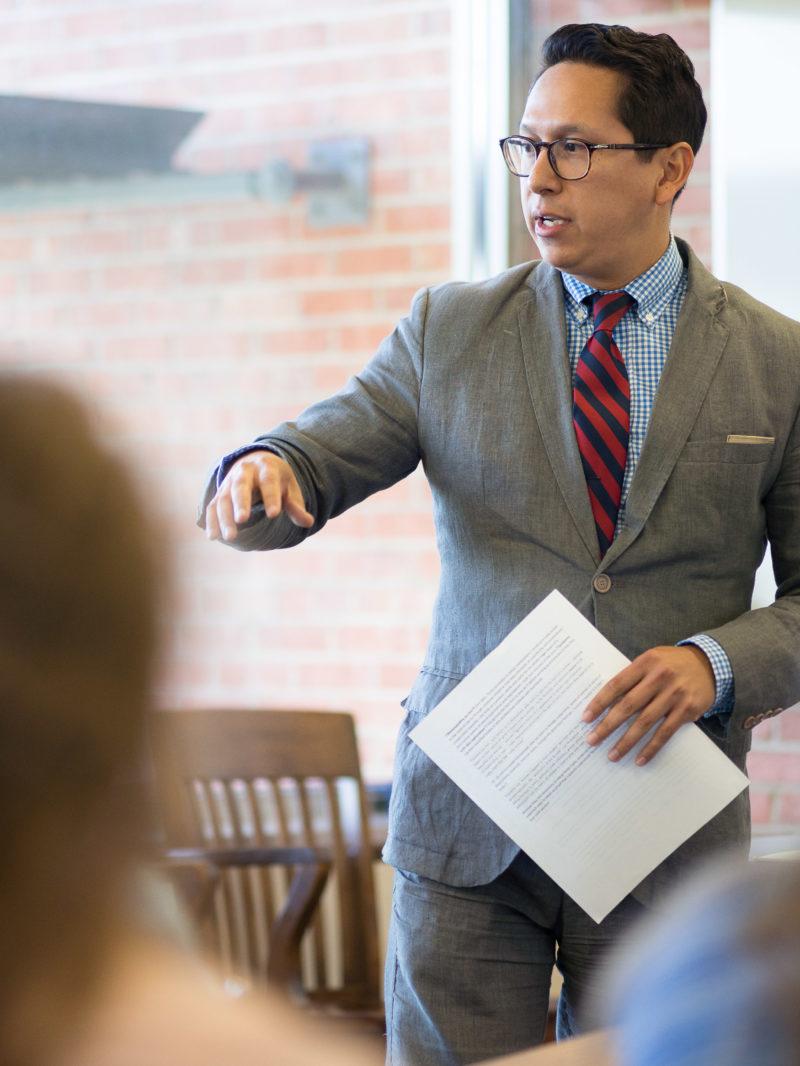Christiana Ellard, a sophomore urban studies major, is in the process of creating an interdisciplinary second major in food and nutrition studies. She hopes to create a major that falls between the pre-med track and environmental studies and helps students learn about food from a social science perspective.
“My goal with this project is to give students an overarching look into food beyond biology. I want them to see both the social and biological aspects of it,” Ellard said.
During her first year at Trinity, Ellard took a First Year Experience (FYE) called Food Matters. This course inspired her to continue studying nutrition.
“I was looking at a concentration in global health and wanted to expand it,” Ellard said. “Taking Food Matters really helped me expand my horizons.”
Ellard wants to be a field medical epidemiologist, which is a profession that focuses on disease control; an interdisciplinary approach to food and nutrition could help her better prepare for a career in this field.
“I discovered that a lot of the issues I was learning about could be approached from an interdisciplinary perspective,” Ellard said.
Ellard has worked closely with Alfred Montoya, assistant professor of anthropology, to develop her major.
“I had Christiana in my Health, Illness and Society class, which has content in food and nutrition.” Montoya said. “She is a very energetic and dynamic student. Working with her was a great experience.”
In the past, Montoya taught a First Year Seminar called Food, Culture and Power, which dealt with themes such as the cultural applicability of certain foods, food security and inequality as it relates to nutrition, among other similar topics. These topics are similar to the ones offered in some of his other classes, such as Health, Illness and Society. Montoya hopes to help Ellard and other students continue to pursue these contemporary, interdisciplinary interests.
“We need to show students the different potential opportunities that they have to pursue their different interests,” Montoya said.
In order to create an interdisciplinary major, students must create a formal proposal that must be passed by the University Curriculum Council. The council will approve the major if they see that it is rigorous and is made up of the right kinds of classes.
Nanette Le Coat, professor of French and director of the international studies major, is in charge of helping students with the creation of interdisciplinary second majors. When Ellard decided to create the food and nutrition studies major, Montoya directed her to Le Coat, who could make Ellard’s vision a reality.
“The first step would be for a students to approach a professor that could advise them and people in various disciplines that they think they would like to explore,” Le Coat said. “Many students are interested in interdisciplinary subjects and I think that the university encourages that.”
Le Coat met with Ellard earlier this week in order to talk about some of the details of her proposed major.
“Professors love it when students have ideas and when they are self-motivated, enthusiastic and open to new ideas,” Le Coat said.
The official requirements for the interdisciplinary second major can be found in the Courses of Study Bulletin. Students are encouraged to create interdisciplinary second majors and to reach out to professors for guidance and assistance. The process is lengthy and requires patience, but ultimately allows students to develop various majors that offer them a deeper understanding of the world around them.







